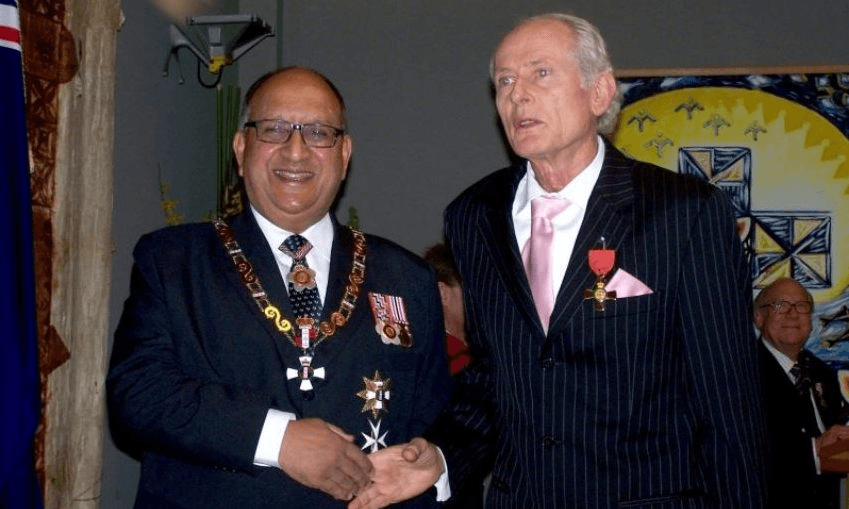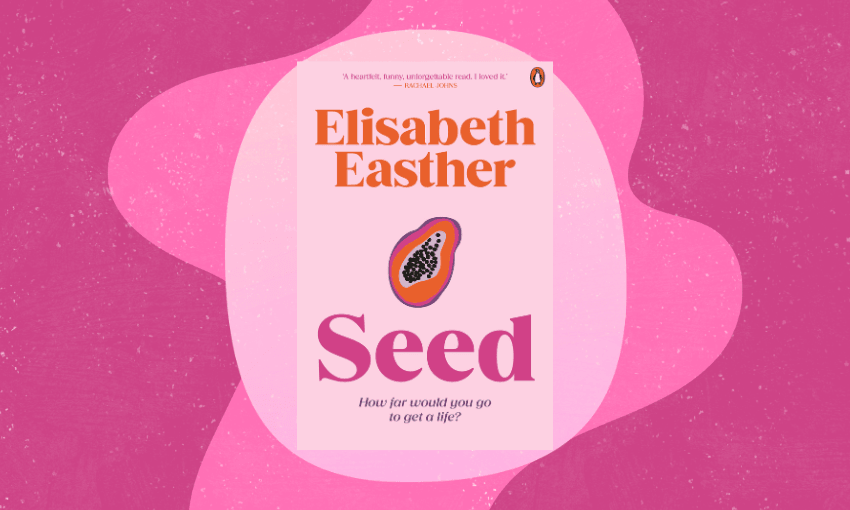The brilliant, barnstorming founding editor of Metro, Warwick Roger, has died aged 72. In this essay first published on the Spinoff in 2017, a memoir by American writer Richard Ford prompts Sir Bob Harvey to look back on his friendship with Roger and their shared love of Ford’s books.
How does friendship happen? What glue does it take? Does it always finish in death as all stories do, said Hemingway…
I first met Warwick Roger at a small media gathering at Barbara Goodman’s house in St Stephens Ave, Parnell. Robbie was standing again for his last term as mayor of Auckland and announcing his campaign. Goodman as always was doing the heavy lifting. She was his niece and played his mayoress for three terms. Robbie was on the way down and out by then but still loved power and the odd secretary.
Standing by the bay window was the Auckland Star journo Warwick Roger. He looked bored and I liked him straight away. As Robbie raved we walked in the lush garden and talked politics and advertising. He liked neither.
In the months ahead Cath Tizard got the mayoral job and so made a life-long enemy of Sir Dove, who died hating everybody.
A few years later Warwick was appointed editor of the new city mag Metro. Classy, fresh, and bloody sharp. He called me after reading a piece I had written about a New Year’s Eve party I attended in Tonga thrown by the king. I had called him King Kong and Warwick loved it. We had a beer and he asked me to write something. Anything you like, he said.
I wrote about wine in West Auckland and the people who made the stuff. I had drunk so much of it I was an expert. He bought it and I felt overwhelmed with pride. I wanted to write more than advertising copy and I felt he could teach me the skill needed. I wanted a mentor and I got one. We fell easily into talking about our lives, our work, our wives, our needs. He was still with his first wife and had married young like me and we both had kids. We liked being fathers and we also liked our own space – him to run down bush tracks or wet streets, me to swim in the surf at Karekare.
We both loved reading. Almost as good as sex, he said. I didn’t agree.
We both had read the same great books – Hemingway, Fitzgerald, DH Lawrence, and then along came The Sportswriter by Richard Ford and it knocked us both for a six.
He got it at Unity Books and we’d both felt we had found our true voice. Ford nailed lonely men, the cruel hot desert wind, and trouble creeping up. Ford caught the unease we have with life jobs and women. He touched us with his sharp, honest, unshackled prose.
With Ford and Warwick on board I felt I could write and understand what words could unreel. Warwick and I started running together; he was a true runner, lean and taunt, plenty of air, a big strider. I wanted talk on our time together, words about structure and pace. I needed tips on style. He said, “Read Ford.”
We would often run in the rain down slippery Waitakere tracks, jumping creeks in a single bound. Down Black Rock Dam to Piha, up the Pararaha Gorge. I was loving being a new father and now he was getting divorced. I thought Ford had made him do it and it would turn dark and end like Ford’s tales, in tears… It wasn’t easy but he and Robyn made it work. I played an old wind-up gramophone at the wedding while the great sprinter coach and Freemason Joe McManermin married them in the Domain.
Soon after he came out West to live and we ran almost every weekend. We talked new stories and we bagged the rich and the pricks from the corporations who were fucking Auckland. We did hate well. I should tell you we loved our dogs. Labradors, black and lean running dogs that pounded alongside. God I miss them.
We waited for Unity to call up with another Richard Ford gem. If The Sportswriter was the benchmark, we thought his novel Independence Day was just perfect. We thought that he somehow knew what we were thinking and had got our measure somehow.
When Robyn and Warwick moved to Devonport we got this crazy idea to mark mid-winter with a run and swim. Starting at dawn. I’d roll up to his house and get him out of bed, we would run for an hour up around the town, then up Mt Victoria, then down to the beach and swim naked out into the harbour. Glorious man’s stuff, impossible for women to understand.
Warwick and I lived in a golden age of friendship. For the last 10 years the dreaded Parkinson’s has crippled my man. Reduced his life. Taken his skill and breath. I hate what it’s reduced him to.
Now Unity has called again. Richard Ford has a new book – Between Them, a small, deeply moving, intimate portrait of his parents. It’s vintage Ford, bleak and painfully sad. His folks live small and closed lives clinging to a ritual of survival as their happiness slips away. The young Ford bounces around the South, from grandparents to loopy aunts, trying to join the dots. Now in his 60s, he makes sense of the love they tried to give him.
It’s a story that is close to the bone for both Warwick and me, if I recall our conversation on those Titirangi runs.
I will take my copy of Between Them over to Devonport and read it to Warwick. Maybe for the last time I will catch him on a good day as rain comes roaring in from the West. I will be reading away and he will nod and try a smile and fall slowly asleep.
Between Them by Richard Ford (Bloomsbury, $22.99) is available at Unity Books.



